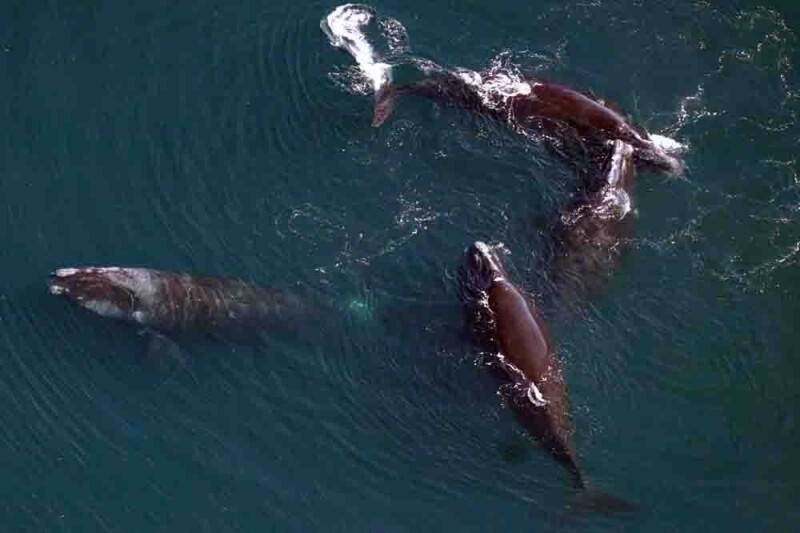The Maine Department of Marine Resources (DMR) commissioner Patrick Keliher, along with fishing organizations in the state has alerted lobstermen to take precautions to prevent entanglements with right whales.
Following a large presence of the mammals being spotted off the state’s southern coast. Keliher said regulators have detected as many as 90 individual whales on the western edge of Jeffreys Ledge off the southern coast of the state.
In a statement, Keliher asked lobstermen to voluntarily remove traps set in greater than 300 feet of water – the area with the largest overlap of gear and whales. If harvesters are unwilling to remove traps entirely, Keliher asks them to at least drop one endline to reduce the number of vertical lines that whales can encounter. Federal and state law enforcement will not be enforcing requirements for two endlines at this time.
“Let me be clear, this is not mandatory; this would be a voluntary action on your part. However, failure of the industry to self-regulate your activity could be costly in the long run,” Keliher said. “I urge fishermen to work together to reduce the amount of gear and endlines in the area in order to protect both the right whales, as well as the future of the Maine lobster fishery.”
Keliher has also implemented a voluntary slow zone of 10 knots in the area.
The Maine Lobstermen’s Association also posted a statement following a public meeting held in Kennebunk on Tuesday night, “lobstermen who fish in Zones F & G reached a gentlemen’s agreement to remove one endline from trap gear fishes in the areas surrounding Jeffreys Basin where endangered North Atlantic right whales have been spotted.”
They also noted that lobstermen at this meeting agreed to leave the southwest endline and drop the northeast line if possible. Lobstermen commented on Facebook posts with the shared statement enraged by the idea of grappling for traps with the security of only one endline.
North Atlantic right whales are listed as a critically endangered species, with estimates showing roughly 370 individual whales left in the wild.
In his message, Kehiler warned lobstermen that any entanglements linked to Maine fishing gear could lead to further restrictions on commercial fishing operations to protect the whales. Most recently, a dead right whale found off the coast of Massachusetts in January 2024 was found to have been entangled in Maine fishing gear.
“One entanglement will eventually lead to additional federal restrictions, including closed areas and limiting the use of traditional gear,” Kelihar said.
Earlier in January, the Commission for Environmental Cooperation (CEC), part of the United States-Mexico-Canada Agreement (USMCA), announced an investigation into the U.S. for allegedly failing to enforce regulations set in place to protect right whales. The investigation was triggered by a complaint filed by Oceana in 2021.
“Critically endangered North Atlantic right whales may have more of a fighting chance thanks to steps taken today to objectively assess what has and has not been done to save this species from extinction," Oceana U.S. Campaign Director Gib Brogan said. "Just as Canada and Mexico are expected to uphold their environmental laws under the USMCA, the U.S. must be held to the same standard. Time is of the essence for these whales, and it's clear that the United States is not doing enough to protect them.”
Nathan Strout did initial reporting with additional details added for National Fisherman. This article is posted with permission from Seafood Source.







